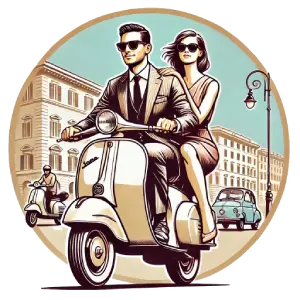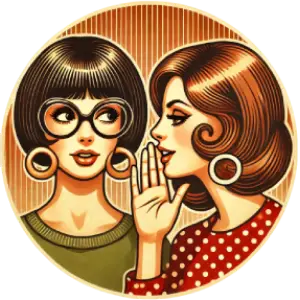The adjective “bello” is one of the most known Italian words. It follows a special rule, which you should learn and remember if you want to speak correctly
Foreigners make fun of Italians saying “Ciao bello!” or “Ciao Bella!”. I think it’s funny and also a good stereotype. We are friendly and everyone deserves the title of “bello”.
Let’s see more in detail what this word means and how we can use it correctly.
In English, adjectives come before a noun. In Italian we usually put them after.
- Ho una penna rossa and not Ho una
rossapenna. We can’t put rossa before penna.
Some adjectives however, can be put before or after a noun, changing the value of the noun itself.
- Leonardo Di Caprio è un attore bravissimo.
- Leonardo Di Caprio è un bravissimo attore.
In the first case, we express an objective fact. Di Caprio is a great actor. In the second example, we want to express a point of view, the value of Di Caprio as an actor according to the opinion of the speaker.
Since bravissimo is a superlative, the position of the adjective here does not change much the intensity or the perspective of the speaker.
A better example would be:
- Mario è un vecchio amico.
- Mario è un amico vecchio.
In the first case, we say that Mario is al old friend, in the second Mario is an old person and he’s a friend. So, the first case is an example of a qualitative use of the adjective vecchio, it’s about my friendship with Mario.
There’s a more extensive explanation on another blog about the position of adjectives in Italian sentences. Have a look.
The adjective bello belongs to this second category. We can put it before or after the noun.
If we put it after the noun, it acts as a normal aggettivo, changing as singular or plural, masculine or feminine. We express an objective situation:
- Il bambino è bello – sm
- La bambina è bella – sf
- I bambini sono belli – pm
- Le bambine sono belle – pf
However, if we put bello before the noun, it changes quite radically and instead of agreeing with number and gender, it follows the rules of definite articles IL – LO – LA – I – GLI – LE – L’.
- il ragazzo
- lo zaino
- la macchina
- i regali
- gli anni
- le colline
- l’albero
We get as a result:
- Mario è un bel ragazzo.
- Hai un bello zaino.
- La Ferrari è una bella macchina.
- Ho ricevuto dei bei regali.
- Ho passato dei begli anni all’università.
- In Toscana ci sono delle belle colline.
- Davanti a casa mia c’è un bell’albero.
We don’t simply say that an object is beautiful. We want to give an opinion, a subjective point of view.
Using correctly the Italian adjective “bello” will help you to speak naturally and, why not, to get along with Italian people.
Try the quiz. Alla prossima.
LOADING QUIZ…







Cristal clear, finally! Thanks
Glad I tried the test. Reassured me, I mostly have it right. Thanks so much! A good lesson.
Prego.
Hello Riccardo. Is Bella Oggetti bad/wrong translation for beautiful objects? I prefer the sound of Bella but am not sure whether it can be used with the plural- oggetti? What is the best translation for “Beautiful Objects”
Thanks in advance.
According to the rule explained here:
* gli oggetti —> begli oggetti / oggetti belli
“Oggetti” is plural masculine.
Ciao. R.
Can you think of a feminine plural word for objects/ items/ articles/ gifts
Thanks in advance. Selena.
“belle cose” or “tante belle cose”
That’s feminine.
Thank you 🙏
Hi Riccardo,
I’m from Australia and I asked you the same question a couple of weeks ago.
If I started a business and called it “Bella Oggetti”- would most Italians immediately think that it is bad translation/ laugh at me? I know that Bella is feminine/singular and Oggetti is masculine/plural….. I just really like the sound of it. But I need an Italian person to give me an honest opinion? I really wish I could get away with it…. quite obsessed really but I do have other names I could settle for just wish I could make it work. Thanks in advance AGAIN 👋 Selena
“If I started a business and called it “Bella Oggetti”- would most Italians immediately think that it is bad translation/ laugh at me?”
Not sure if they will laugh at you but yes, that’s pretty bad.
I have seen the greeting ‘Ciao Belè’. Is belè the same as bello?
Some people in local areas of my region (Lombardia) use “belè” instead of bella, usually for women. It’s an old fashion expression in dialect, uncommon in many parts of the country. I wonder where you heard that. Ciao.
Ciao Riccardo,
I have a question for you. Would “Bello Voce” be an appropriate for the name of a choir (of boys) or would it be “Bella Voce?” I’ve heard Bella quite often, but I’m curious about the term referring to more of an all male group. Would “Bello” work in this situation?
Thank you for your help.
Would it be “Bella Voce? —> Yes. Voce is feminine. Bello is for masculine nouns.
You could make it plural in this case: “belle voci”.
Is “Voce” always feminine? “Voce” translates to “Voice” right? Can’t there be a masculine “voce” such as Bello Voce? I understand some Italian, but very novice in the field. I hope this isn’t a dumb question. I’m hoping to name a group of singers “Bello Voce” but I don’t want to give it a name that doesn’t make sense…
Voce is always feminine, so Bello Voce is wrong. Ciao.